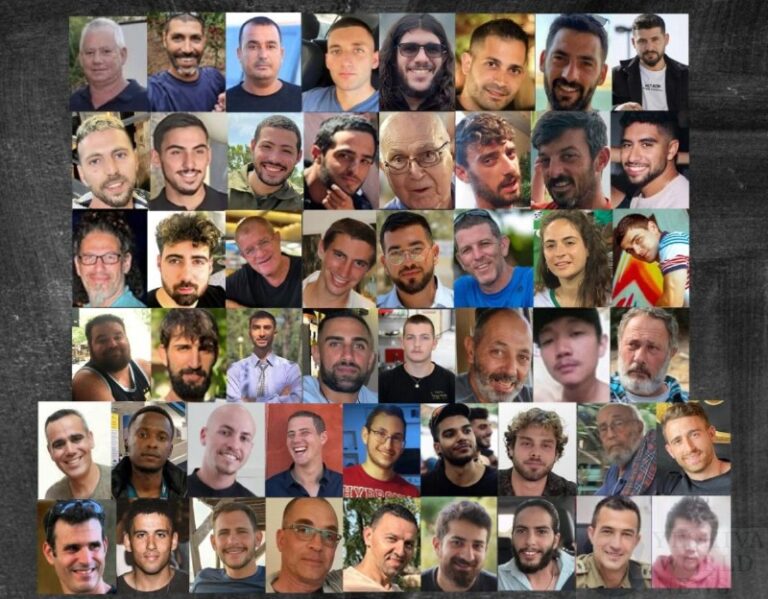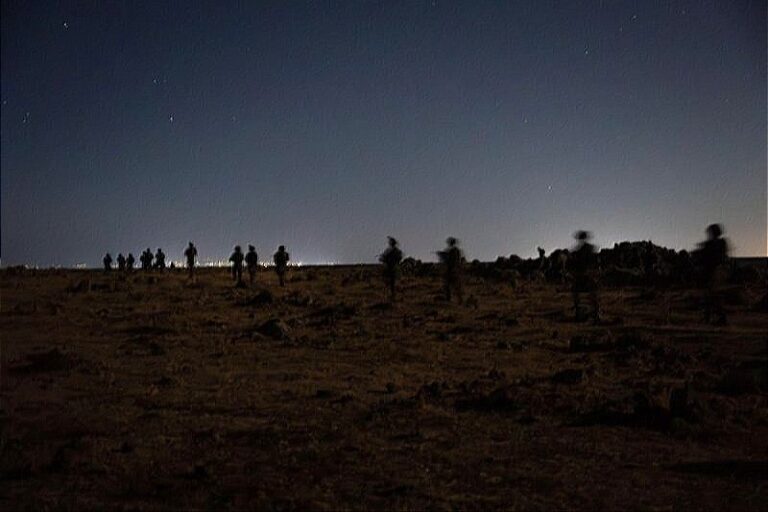by Rabbi Yair Hoffman
It is Motzai Shabbos after a 3 day Yom Tov and included in it is the invariable discussion of the Chol HaMo‘ed trip. The Chol HaMo‘ed trip involves much more than the trip itself–it involves deciding where to go, who exactly goes, and what to do when we get there.
But what about a sukkah?
Do we need to make arrangements for a sukkah in which to eat on the trip? Does it depend upon the type of trip? The question of course only applies to the male members of the family, since the women are exempt from the obligation to eat in the sukkah. (It is a mitzvah for women to eat in the sukkah, but they are not obligated to do so.)
Also, technically, although one can be stringent and avoid eating anything outside of the sukkah, the basic obligation is to eat one’s “set meals” in the sukkah. One may eat foods in an arai manner, which means not in a set meal. Certain foods by definition are considered “set meal” foods, such as a mezonos food (foods for which a mezonos berachah must be recited).
There is a fascinating beraisa quoted in the Gemara in Sukkah 26a: Travelers, holchei derachim, who travel in the daytime are exempt from the obligations of sukkah during the day and are obligated at night. Travelers who travel during the night are exempt at night and obligated during the day.
The explanation for this beraisa is found in Rashi: The verse tells us “You shall dwell in sukkos”–just as you dwell in your homes. Just as the entire year one does not refrain from traveling for business purposes, so too during all the days of the holiday that are not Yom Tov the Torah did not require one to avoid travel.
The Shulchan Aruch rules in accordance with this beraisa in Tractate Sukkah. The question arises, however, as to who exactly is included in holchei derachim, travelers. Does it mean anyone? When the family takes its annual trip to the amusement park, are we considered travelers? Unfortunately, not so fast. Some poskim distinguish between a “pleasure” trip and a “true need” trip.
Rav Moshe Feinstein, zt’l (Igros Moshe, O.C. III No. 93), rules that one who takes a pleasure trip is not included in the permissive clause of this beraisa in Sukkah. He rules that people are “holchei derachim” only when traveling for a substantive purpose. Pleasure trips, in Rav Moshe Feinstein’s perspective, are not considered substantive enough to exempt one from the mitzvah of Sukkah.
Rav Moshe did make an exception when it comes to traveling to Eretz Yisrael (or another country, for that matter), when the traveler could not make the trip during another time. He writes (Even HaEzer IV 32:8) that if one travels extensively for a short period of time and has no other time to do so, it is not considered a pleasure trip, but rather a “true need” and is therefore permitted.
Rav Shlomo Zalman Auerbach, zt’l, is also quoted as ruling that Chol HaMo‘ed pleasure trips on Sukkos do not exempt a person from the obligation to eat in a sukkah (see Sefer Succas HaShaleim, p. 458). This is also the view of Rav Ovadiah Yosef, shlita (Yechaveh Daas 3:47). The Az Nidberu (11:34), however, is lenient and does exempt the pleasure traveler from eating in a sukkah, based on the aforementioned beraisa. But he adds the caveat that when it is easily done, one should seek a sukkah.
The issue is thus the subject of debate among contemporary poskim. However, if one utilizes the halachic concept of poik chazi mai amah devar–go out and see how the nation conducts itself–one seems to see that the halachah is in accordance with the majority view as expressed by Rav Moshe, Rav Shlomo Zalman, and Rav Ovadiah Yosef. Most men and young boys, when taking Chol HaMo‘ed trips, do not pack a mezonos lunch. They generally only eat fruits and shehakols.
There is another issue that this brings up, however. Even though most poskim seem to indicate that one is obligated in the mitzvah of sukkah when on a pleasure trip, there does seem to be some debate on the subject. This brings up the question as to whether the pleasure tripper recites a blessing when eating in the sukkah, since, according to some authorities, he is technically exempt. One is tempted to say that the situation should be no different than the custom of women according to Ashkenazic Jewry: they are exempt, yet they still recite the blessing! If so, the same ruling should also apply to men when they are exempt.
Yet we do find that when it is raining heavily and one eats in the sukkah (aside from the first night), the person eating in the rain should not recite the blessing, because he has the exemption of metzta‘eir patur min ha’sukkah–if one is extremely uncomfortable, one is not obligated to eat in the sukkah. This is based on the writings of Acharonim. For example, the Machatzis haShekel, in the beginning of O.C. 639, writes that whoever is exempt from sukkah does not recite a blessing.
It would seem, however, that in this case, it is significantly different, and one would still recite a blessing. The Machatzis haShekel cited earlier may be referring to a case where the person is exempt and is therefore not fully appreciating the mitzvah of sukkah. In such a case, the blessing perhaps should not be recited. When the person falls under the rubric of metzta‘er–pained or in a state of great discomfort–he cannot fully appreciate what the mitzvah is all about. Here, however, he is fully appreciating it, in that he is seeking to perform it even when he technically does not have to do so.
How do we fully appreciate the mitzvah of sukkah? By realizing that Hashem is truly the One watching over us constantly: that He did so while we were in the Midbar, with both real booths and the Ananei haKavod, and that He still is watching over us constantly. Our faith, trust, and hope lie solely in Him.
Training Children To Eat In The Sukkah
There is a pasuk in the Torah (Vayikra 23:42) that states, “You shall dwell in booths seven days; all the citizens of Israel shall dwell in booths.” The Sifra, the oldest commentary on the book of Vayikra, comments on the word all. “All comes to include the children,” states the Sifra.
The Gemara in Sukkah (28b), however, points to a contradiction from the Mishnah on the previous amud. Our Mishnah states that children are exempt from sukkah! How, then, do we understand the derashah found in the Sifra? The Gemara provides a resolution: The Mishnah discusses very young children that have not reached the age of instruction. The Sifra is referring to older children. The obligation, however, is still rabbinic in origin. Why then did the Torah use the word all? It is a Biblical device known as an asmachta, where at times the Torah will hint to a future rabbinic enactment.
Okay, so now we have some kids who are obligated and some who are not. What are the parameters of “the age of instruction?” The Gemara offers two different guidelines. Rabbi Yannai defines it as whether the child is toilet trained: when he uses the facilities, does he still need his mother? Reish Lakish says that the parameters depend upon when he wakes up at night, does he still call out for his mother? These are the parameters for when a child is exempt or obligated.
The question arises as to whether Rabbi Yannai and Reish Lakish are arguing. Rashi (Eiruvin 82b) seems to understand that they are in agreement. The Sefer Mitzvos Gedolos (SMaG), however, seems to understand that these two views are different. (So it seems that Rashi holds that when the child is toilet-trained, he doesn’t yell out for his mother in the middle of the night. The SMaG disagrees and holds that one is later than the other. A quick poll of some Five Towns mothers indicates that they hold like Rashi.)
So what is the age? The Shulchan Aruch rules that it is five or six years of age. Most Acharonim understand this to mean that it depends on how sharp the child is.1
Does this mean for both eating and sleeping? The answer seems to be that it is for both.
Which now brings us to an interesting issue, a discussion of which is found in a sefer entitled HaKatan VeHilchosav (cited in BaSukkos Teishvu, p. 161). What happens in the following situation: You have room for only two beds in your sukkah–one bed for you, and one bed for your 12-year-old son. And now, a guest arrives from Israel and stays with you. Do you let your son stay in the house and allow the guest to sleep in the sukkah (hoping he doesn’t snore), or do you ask your guest to sleep in the house and have your son sleep in the sukkah as originally planned?
The question pits two halachic issues against each other. The obligation to train your child is your obligation. The obligation for the guest sleeping in the sukkah is someone else’s obligation, not yours. Do we say that your obligation of chinuch outweighs your guest’s obligation of sleeping in the sukkah? When the question was first posed to Rav Elyashiv, he seemed to indicate that this was indeed the case; your obligation outweighs your guest’s obligation–even though your guest’s obligation is Biblical, while your obligation in training your child is merely rabbinic!
However, it seems that Rav Elyashiv changed his mind. Your guest’s obligation is actually not just your guest’s obligation, but your obligation as well. There is a concept in the Torah called arvus–responsibility for one another. We took an oath at Har Sinai. We as Jews are responsible for the mitzvah observance of all of our fellow Jews.2 The responsibility of arvus is actually a Biblical one, too. Hence, Rav Elyashiv revised his position to rule that the homeowner should allow the guest to sleep in the sukkah and his son should stay in the house.
 (One might have taken issue with Rav Elyashiv’s revised opinion with the following argument: Just as a lulav and esrog is an expenditure and the concept of arvus does not obligate you to spend money on someone else’s obligation, so too one can view the building of a sukkah as an expenditure, and, therefore, one would not be obligated to tell a child not to fulfill the mitzvah so that the guest can. However, to counter this argument, it can be pointed out that there is another mitzvah of chinuch here for one’s own child. We can teach our child the very important mitzvah of arvus.)
(One might have taken issue with Rav Elyashiv’s revised opinion with the following argument: Just as a lulav and esrog is an expenditure and the concept of arvus does not obligate you to spend money on someone else’s obligation, so too one can view the building of a sukkah as an expenditure, and, therefore, one would not be obligated to tell a child not to fulfill the mitzvah so that the guest can. However, to counter this argument, it can be pointed out that there is another mitzvah of chinuch here for one’s own child. We can teach our child the very important mitzvah of arvus.)
The lesson is an important one in the notion of arvus, responsibility toward others. Rabbi Moshe Cordevera, in his Tomer Devorah, gives us one insight into the idea of arvus and communal responsibility. He quotes earlier authorities who write that all the neshamos of K’lal Yisrael are in reality one great soul. Each and every one of us possesses a part of that neshamah of K’lal Yisrael and, as a consequence, we are all intimately connected to one another. The verse in the Torah that says ve’ahavta lerei‘acha ka’mocha, love your neighbor as yourself, is actually quite true from a physical sense–your neighbor is part of you (see also the Yerushalmi on Nedarim 9:4).
NOTES:
1. The Gemara later points out another contradiction about the exact age. Is it four or five, or is it six? The Gemara resolves this contradiction by differentiating between when the father is in town and when he is out of town.
2. In fact, this is one of the reasons why we can make kiddush for another Jew, when we have made kiddush already. We have never completely fulfilled our obligation of kiddush when there is even one Jew out there who has not yet heard kiddush.
The author can be reached at [email protected]











